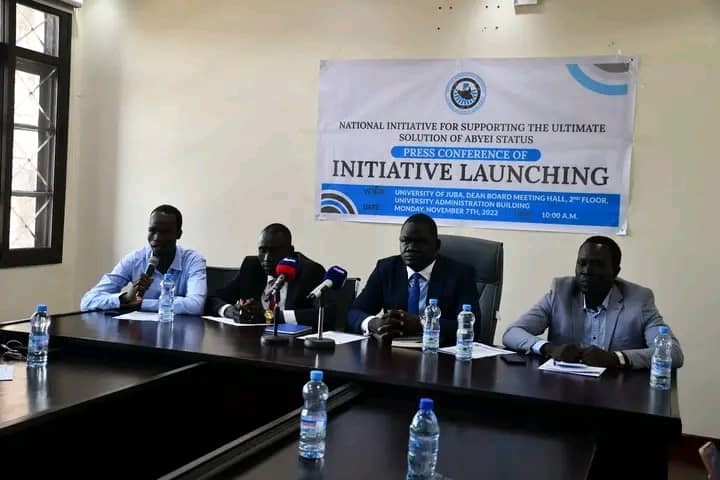South Sudan, Sudan yet to operationalize joint border monitoring force: official
November 10, 2022 (JUBA) – South Sudan and Sudan are yet to operationalize a joint cross-border monitoring and verification force for permanent demarcation, an official said.
South Sudan’s security advisor, Tut Gatluak Manime said the two countries would form a joint monitoring and verification force once the political situation in Sudan normalizes.
“The current situation in Sudan has preoccupied and taken away the attention of the leadership there. This has resulted in the delay in the forming and operationalizing of joint border monitoring and verification force. But we are ready. We are just waiting for a go-head directive from the top leadership,” he told Sudan Tribune.
The presidential advisor commended existing cooperation between the two countries, pointing to the return of the Sudanese nomads by the Sudan people’s liberation movement -North (SPLM-N) under the leadership of Adam Abdel Aziz Al-Hilu.
“The current working relations are excellent. Our security organs and forces are working together in tracking and coordinating their activities in a collaborative spirit along the border,” explained Manime.
He added, “So far, there is no problem and God willing this spirit will be upgraded to strategic cooperation”.
The official said the current relations between the two countries are guided by the 2012 Cooperation Agreement, signed by leaders of both Sudan and South Sudan. The agreement brings together the leadership of the two countries to affirm and pursue the overriding principles which each party pledges for the mutual viability of the two states.
It recognizes the long-standing connections between the people of South Sudan and Sudan and sets out the basis for developing a cooperative relationship in all fields of mutual interest that will ensure the prosperity of both states. The two states pledged to implement all the agreements into which they have entered, and generally to maintain peaceful relations with each other.
Meanwhile, the Unity state governor Joseph Nguen Monytuil described relations between South and Western Kordofan states as cordial and strong. Governor Monytuil cited cultural, historical, and political relations as the factors underpinning the established existing ties at the border areas.
“We need to widen and deepen our relations in all the fields instead of concentrating on energy, security, and water”, he said.
South Sudan and Sudan are witnessing a marked level of cooperation between the two countries. Sudan brokered the 2018 revitalized peace talks ending more than 5 years of devastating conflict while south Sudan on the other negotiated talks which culminated in the 2020 agreement with the Sudan revolutionary front, a collection of several rebel movements in Darfur and the faction of the Sudan SPLM-N under Agar and Yasir Saeed Arman.
As Sudan and South Sudan have bolstered ties with each other, both sides have sought cooperation where it is mutually beneficial while avoiding interfering in the core interests of each other. This approach has been written into many of the joint statements that frame the relationship.
In March 2022, President Salva Kiir and Gen Abdel Fattah Al-Burhan signed a joint statement agreeing to set a model of peace through the development of unified oil fields. The leaders also pledged to cooperate based on “mutual understanding and accommodation and win-win cooperation.”
This approach, based on shared interests and accommodation, has helped Juba and Khartoum weather multiple shocks, and avoid the kind of rigid, ideological lines which characterized the relations between the two countries under the reign of the ousted Sudanese president Omer Hassan Ahmed Al-Bashir.
They continued: “They have charged their respective foreign ministries to operationalize committees for cross-border development that will elaborate the details of this cooperation to rebuild the historic bridges between our countries,” further added the communiqué issued at the end of al-Burhan’s visit.
The communiqué did not provide specific details of where and how the joint force will be deployed in the oil fields. The two leaders, also, discussed bilateral relations and agreed that joint development projects in the 2000-km border areas are key to sustainable peace. Trade between the two countries is another marked stimulant in their bilateral.
Under the former Sudanese prime minister Abdallah Hamdok and now under the military leadership Burhan, relations between the two countries have recorded Improvements in political and diplomatic relations were accompanied by major upticks in economic and military cooperation during this period.
(ST)

